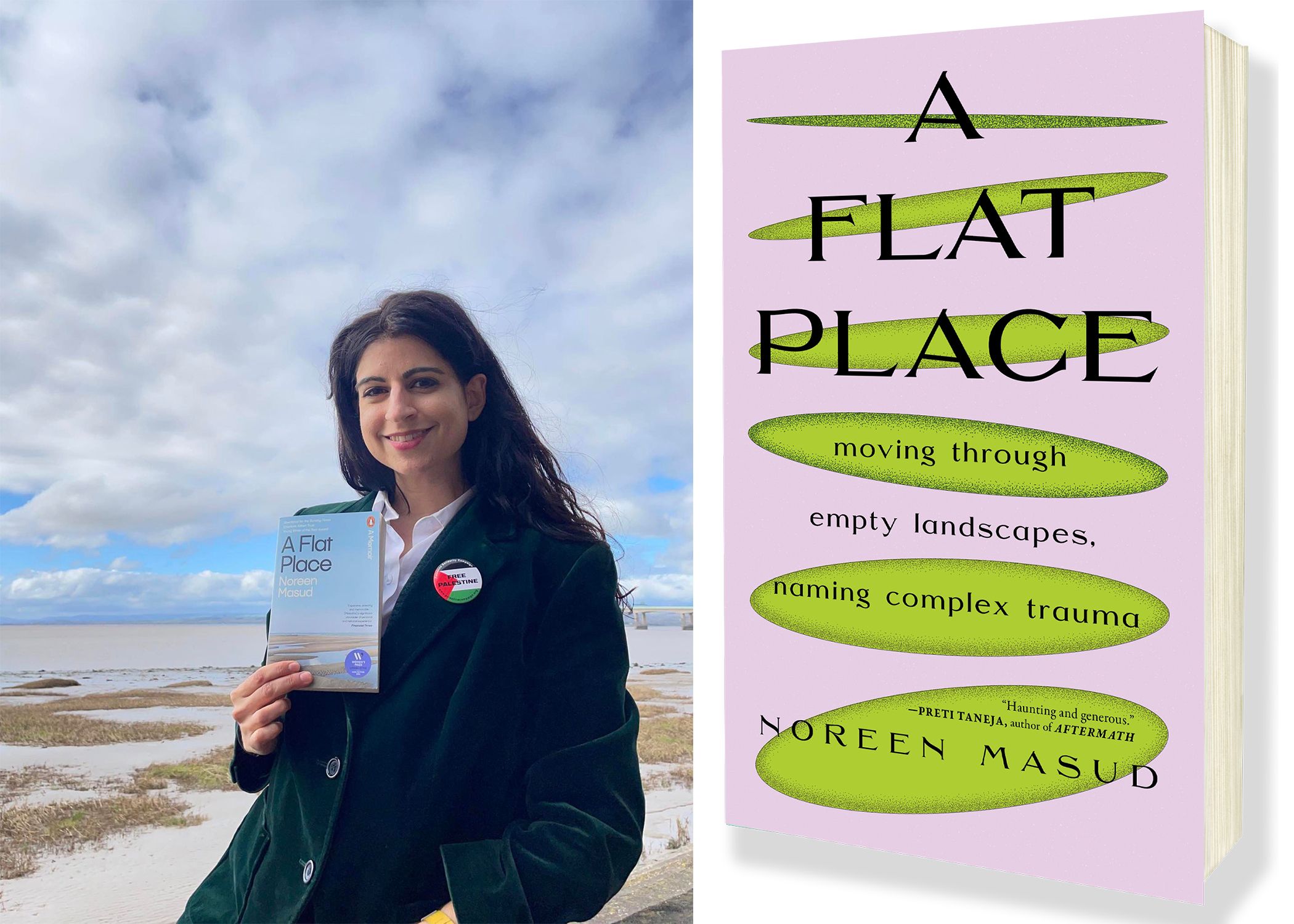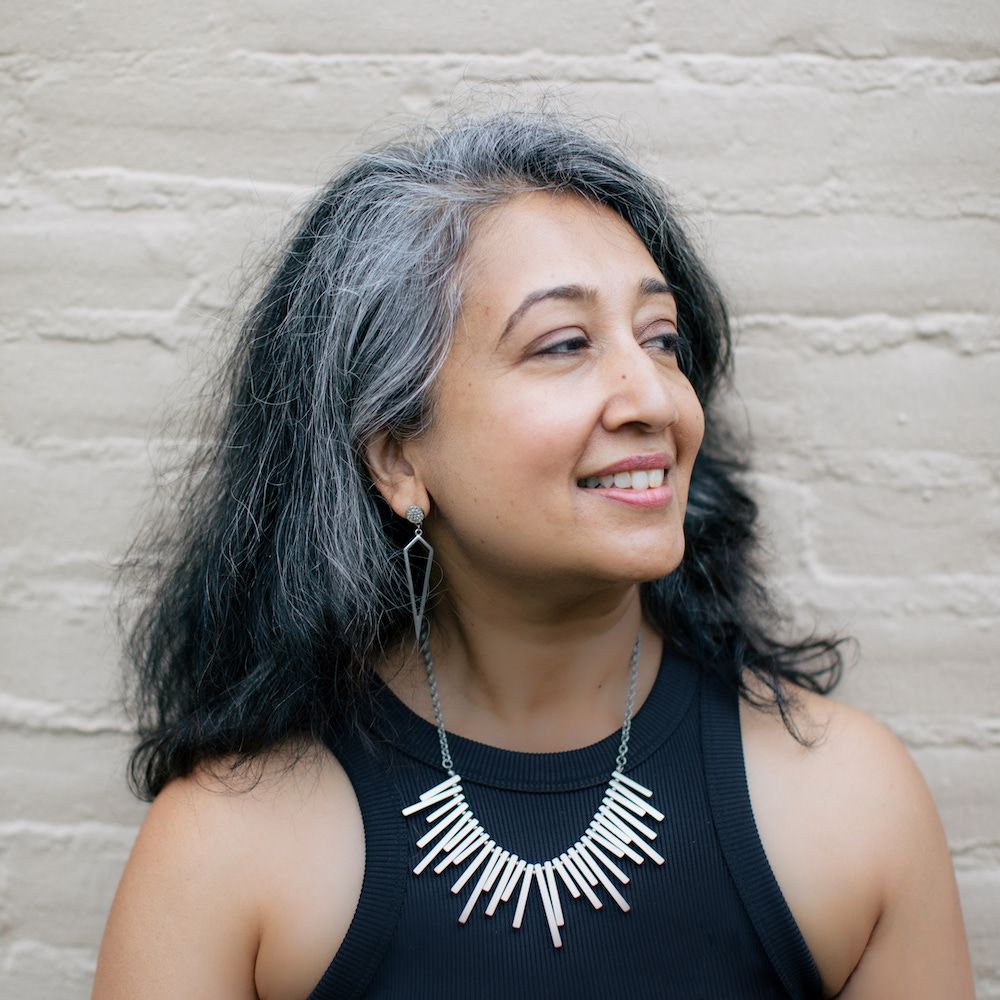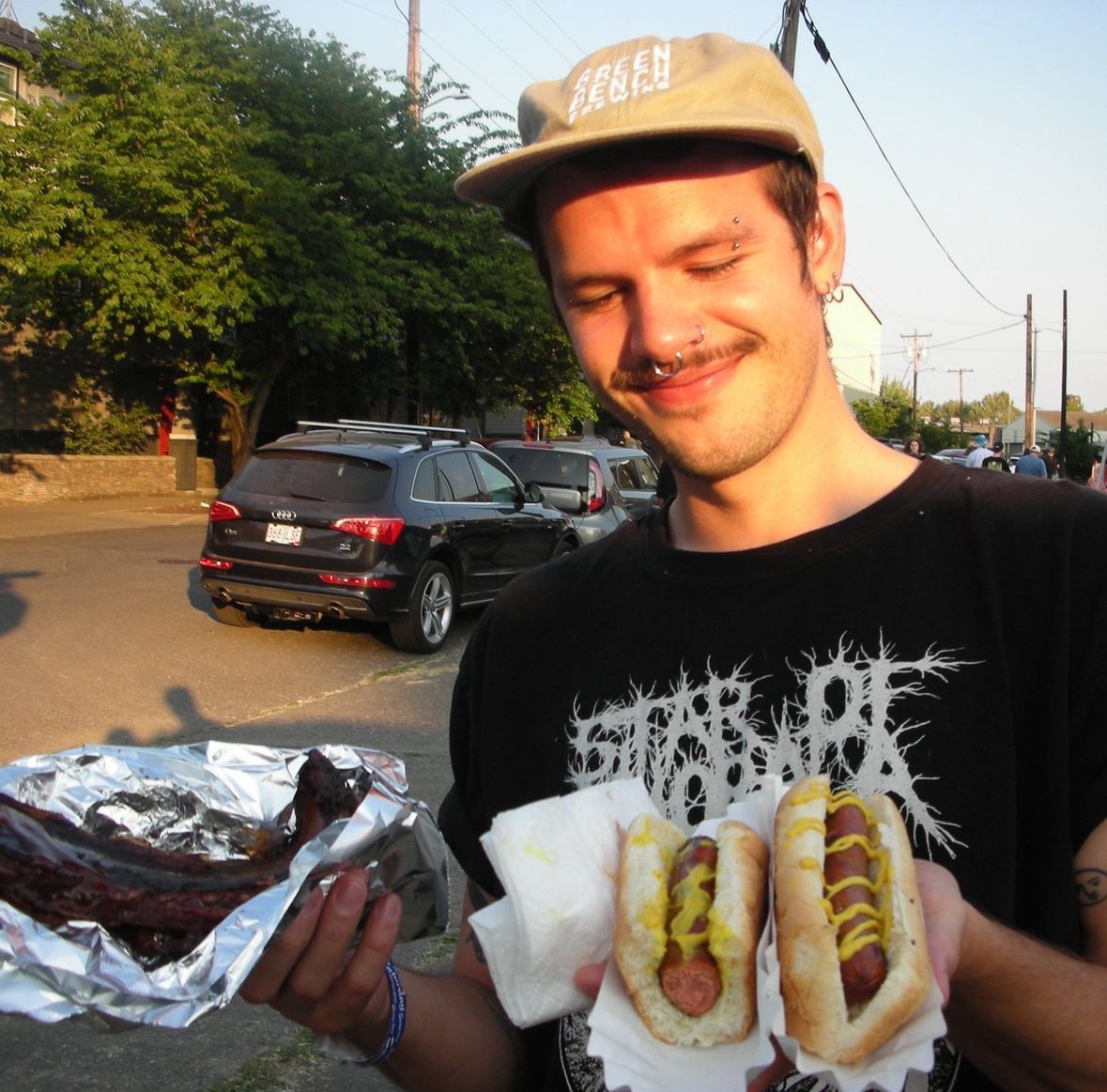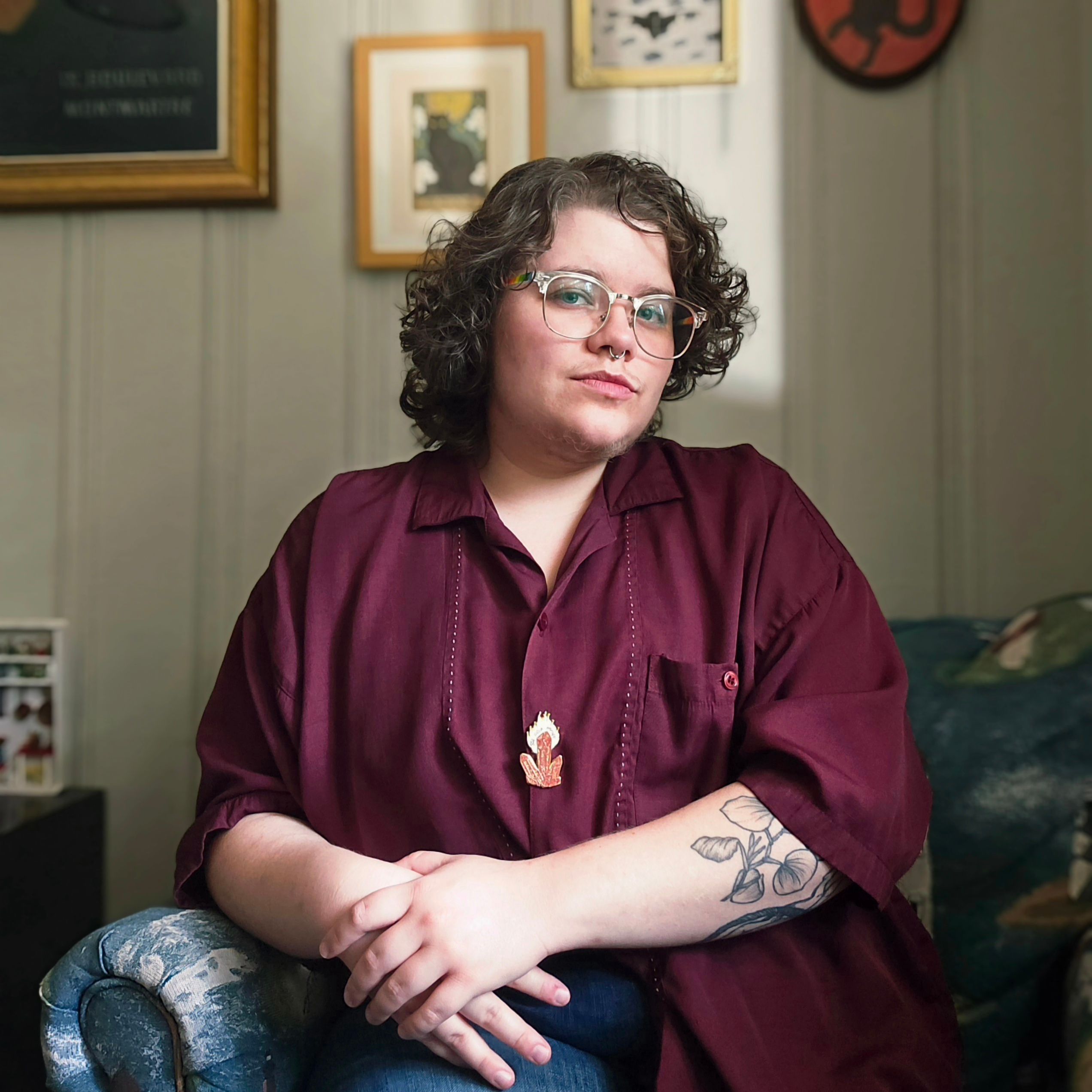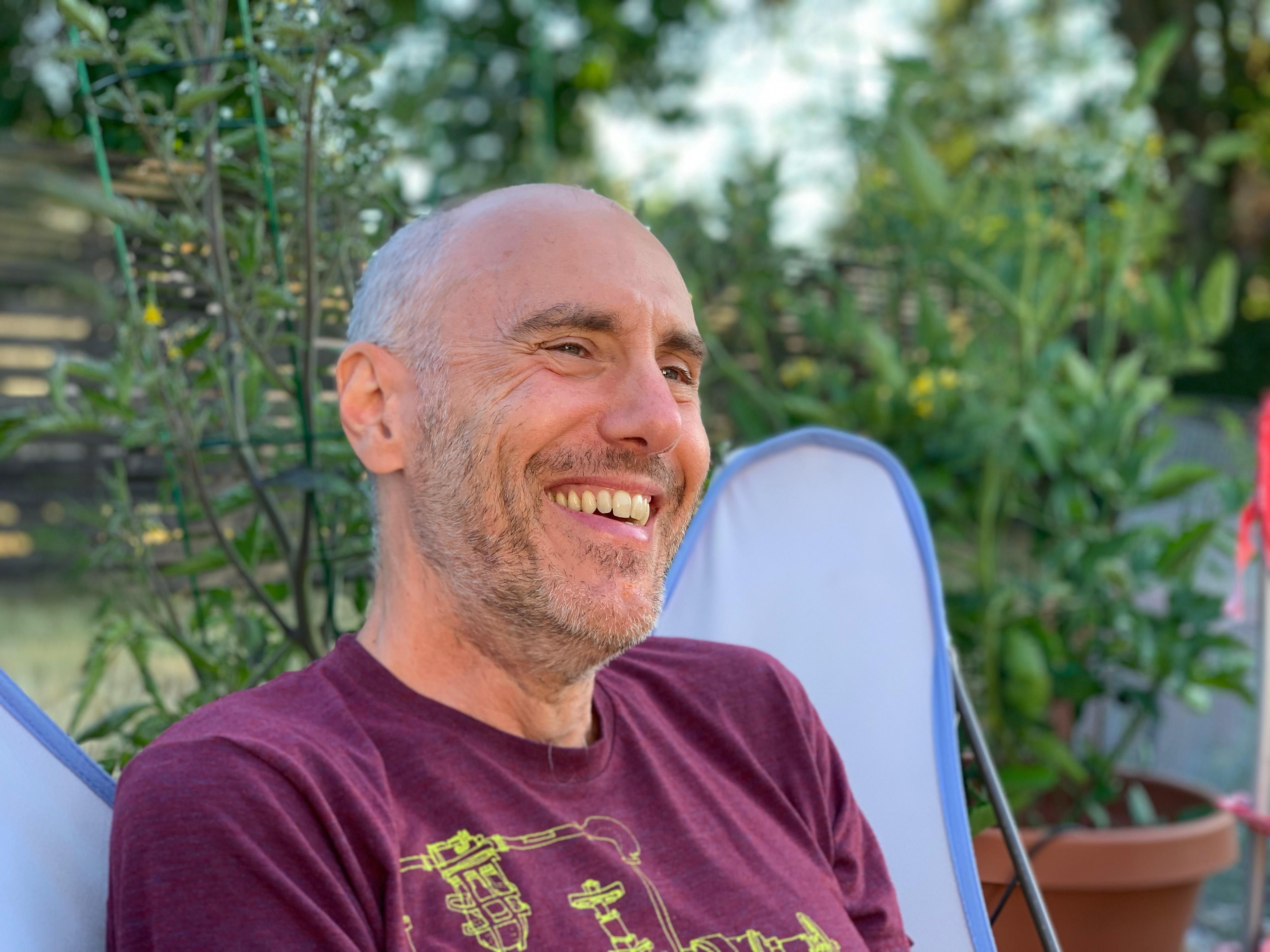Lauren Daley: My first question is around your writing ritual, if you have one. How do you approach the logistics of writing? Do you have a set time of day or the week, or a place that you write, or that you used when working on A Flat Place?
Noreen Masud: I'm a really chaotic writer, always having to coax or trick myself into working.
With A Flat Place, the main strategy I had was to type up the very rough account of my walks the same day that I did them, in the evenings - 1000-2000 words a night. Doing this produced a lot of excess material which got cut, but also yielded insights and connections which made their way into the final draft.
My only viable writing strategy, generally speaking, is to have the documents open on my laptop all the time so that I can switch quickly into them when I have a thought, and type it up. Otherwise, I will forget the thought in the time it takes to locate the document in the folder, and open it up!
LD: Which authors or texts, if any, helped inspire your writing or the themes in A Flat Place?
NM: I would say the main ones are the ones I cite in the text - beyond that, I am very inspired by W. S. Graham's use of language in his later poetry (see, for instance, 'What Is The Language Using Us For?'; the strangenesses in his diction and grammar inspire me) and a long-time critical inspiration was Anne-Lise Francois's book on Romantic and Victorian literature, Open Secrets. It's very attentive to the drama and potential in moments where nothing happens, and the significance of that nothing.
LD: One of the most compelling parts of your writing is when you talk about your relationship and interactions with your friends. In the chapter Morecambe Bay, you wrote that your therapist asked, “What would it be like, to bring people into your world?” Do you view your work on A Flat Place as doing that very thing – in a literal and figurative sense? How did you approach opening yourself up to do that?
NM: I didn't set out to do it, as far as I can remember. I think I saw it as a chance to make space for my world, to allow the world to realize itself fully by my being forced to put it into words, but not necessarily for an audience (this idea underpins my academic monograph, Hard Language: how we might speak without desiring an audience when we are marginalized). That made it more concrete for me, putting it into words. I longed so much to make my world graspable for myself. It was a great privilege to be supported, via a publishing contract, in the project of putting my world into words. But if my memory serves me right, I really didn't think about people reading it. I did think people might be angry, both in Britain and Pakistan, but it didn't occur to me that people might enjoy it, or find value in it. That's come as a great and wonderful surprise.
So, I suppose to answer your question, I didn't set out to invite people into my world, so I didn't have to think about it as opening up to them. I simply made my world concrete in language without reference to other people. And other people then came in, through the book, and wandered around, and in some cases have drawn value from it, and in other cases have for the most part been extraordinarily respectful and kind even when it didn't have meaning for them. And that has been eye-opening, in terms of what an interaction with people might feel like. How it might feel good, to let people in.
I'm very aware though that my reception has been filtered by the fact that I publish with a prestigious publisher, and that when people hear me speak, it is with a clipped English accent. I don't think my world would have been as tenderly received if I didn't have those privileges. Those tend to win you the benefit of the doubt. So, I can't be too rose-tinted about this. There is no lesson here about how there will be listeners if only one opens up, most marginalized people are ignored or brushed over, when they put their world into words. It's not ok.
LD: You talk about the day your father disowned you as a focal point in a story. You talk a lot in the book about the feeling of nothingness in the realm of C-PTSD (Complex Post Traumatic Stress Disorder), of lacking attachment, or connection, and the intersection of your vivid narratives about the places you visit seems a juxtaposition against the nothingness of feeling. How did you approach weaving those two themes – vividness and nothingness – together?
NM: For me, the nothingness of the flat place, the internal landscape of C-PTSD, but also the external level landscape around me, is extremely vivid. It is not a boring nothingness, it isn't bleak, it's something fiery that I can't look away from, even as I am stumped by it, even as I feel despair at my inability to navigate it or focus on it in traditional ways. This is a hard thing to explain. I don't see nothingness and vividness as opposites. I find, in a flat landscape, a way to understand the profound vividness in a space which is empty: the drama of that emptiness, its refusal to justify itself, to apologize, to offer up 'interest' and 'content' to my eyes. There is something vivid, in other words, about something or someone which refuses to make itself available to you in legible ways (so it can look or feel like an absence in them/it).
LD: Is there any theme or part of the book you wish for readers to gravitate to?
NM: Lovely question. If I could ask readers to gravitate to one element, it would be the idea–– in the final chapter/conclusion––that we do not need to understand others to love them, to have solidarity with them; that empathy as a criterion for solidarity ('I understand what you feel because I feel it too') is inadequate. This is the underpinning for my activism and my politics. We cannot understand those who are profoundly different from us, but we don't need to, we only need to believe them, and to understand that our own world/norms/paradigms are so culturally and temporally specific. This belief underpins my solidarity, for instance, with trans people. I am a cis woman; I will never understand what it means to feel not-at-home in my gender. But I believe others when they tell me that this is how they feel. And I offer them my solidarity.
LD: The book has received a lot of praise and recognition. How has it been for you since you published A Flat Place?
NM: It has been good. People have been kind; people have told me the book has helped them (I am so glad it has made you feel seen, or real, or coterminous with something, Lauren). Parts have been odd. It's been very odd (though lovely) being nominated for prizes. It makes me worry or wonder about what comes next––how do I follow it up?
It has also been odd experiencing my book being celebrated against the backdrop of the genocide in Gaza. I am from a Muslim background and I watch, every day, the evidence in the mounting death toll that people from my background are seen by the West as fundamentally disposable, as subhuman––our deaths sad, but only in the way that a dog's death is sad. In fact, even less sad than a dog's death. A Flat Place is, per my earlier answer, at its heart a strategy to think about solidarity with those we cannot understand - who do not seem 'good victims', who might feel illegible or unsympathetic or whatever - or might be presented as such by the media. By and large the literary establishment has been very silent on Gaza. I have had my work edited (not by my editors at my publishing houses) to remove or soften references to the genocide. I have had writing opportunities withdrawn when I indicated my intention to mention Gaza.
For me, writing is and must be deeply political, in the way that living alongside others is always political, cannot be detached from the political. So it has been painful to see the book being celebrated as an aesthetic or pleasure object, or one which 'educates' in a banal way with no implications for the real world, and me simultaneously being treated as naive and tiresome for using any platform I have to try and change minds, I don't understand how anyone could admire the book without expecting me to be vocal about what are, for me, its urgent implications about how we must act and what we must demand for the disenfranchised, for those whose deaths are treated as inevitable, permissible, of less value than others.
